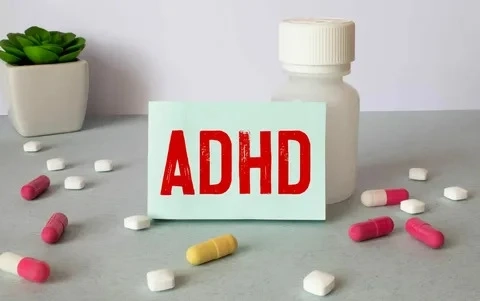Overview
ADHD is a neurodevelopmental disorder that impacts an individual\'s ability to focus, regulate their impulses, and engage in activities. ADHD can have a major negative impact on emotional health in addition to its behavioral and cognitive elements. Medication for ADHD is essential for controlling symptoms and enhancing general functioning, which includes emotional control. This article will examine the effects of ADHD medication on emotional health while taking potential drawbacks into account.
Comprehending Emotional Regulation and ADHD
Difficulties with Emotional Regulation: People with ADHD frequently struggle with emotional regulation. They might struggle with impulse control, frustration management, and controlling feelings like melancholy, worry, or anger. Relationships, social interactions, and general quality of life can all be negatively impacted by these emotional challenges.
Effect on Self-Esteem:
Extended difficulties with focus, planning, and professional or academic work might result in poor self-esteem and feelings of inadequacy. Emotional anguish and mental health issues can be exacerbated by negative self-perceptions and failure experiences.
ADHD Medication\'s Impact on Emotional Health
Managing Emotions and Mood: Medication for ADHD, especially stimulant drugs like amphetamines and methylphenidate, helps manage emotions and mood. These drugs lead to less volatile and more stable emotional states by enhancing executive functioning, concentration, and impulse control.
Improving Emotional Control:
Drugs can improve a person\'s capacity to control their emotions. People might find it simpler to control their frustrations, deal with stress, and react more composedly in difficult circumstances. Better emotional control promotes more positive social interactions and relationships.
Increasing Self-Esteem:
People frequently report feeling more confident and self-assured as their ADHD symptoms go better when taking medication. Achievement in one\'s personal, professional, or intellectual pursuits enhances one\'s sense of self and general well-being.
intellectual pursuits enhances one\'s sense of self and general well-being.
ADHD Medication Benefits for Emotional Health
Decreased Stress and Anxiety:
ADHD medication helps lessen stress and anxiety symptoms associated with ADHD difficulties. Enhanced concentration and arrangement lessen emotions of being overburdened and assist people in handling duties more skillfully.
Improved Mood Stability:
Medicine helps people feel happier and more emotionally stable, which lessens the mood swings and emotional dysregulation that are frequently linked to ADHD. Better coping mechanisms and emotional resilience are fostered by a more stable emotional state.
Better Emotional Control and Decreased Impulsivity:
These two factors improve social relationships. People taking medication for ADHD may find it easier to make and keep friends, participate in conversations, and read social signs.
Things to Think About and Possible Side Effects
Individual Response Variability: Although taking an ADHD medication might significantly improve one\'s emotional health, each person will react differently. Some people may have adverse consequences including mood fluctuations, emotional blunting, or irritation. To address any issues, it is imperative to monitor and maintain communication with healthcare providers.
Long-Term Effects:
Research on how ADHD medication affects mental health over the long term is still being conducted. According to certain research, taking medicine consistently over time may help with better mental health and emotional control. But more investigation is required to fully grasp the implications.
How to Use ADHD Medication to Support Emotional Well-Being
Frequent Monitoring and Communication:
It\'s critical to keep in constant contact with healthcare professionals and to monitor the effects of medications on a regular basis. Any worries regarding side effects, mood swings, or emotional health should be taken seriously and quickly.
Complementary therapies can improve coping mechanisms and emotional control. Examples of complementary therapies include mindfulness exercises, cognitive-behavioral therapy (CBT), and psychotherapy. Combining these methods with pharmacological treatment can offer all-encompassing assistance.
Good Lifestyle Practices:
Developing good lifestyle habits, such as consistent exercise, enough sleep, a balanced diet, and stress reduction strategies, enhances mental health in general. These methods support holistic wellbeing and enhance the effects of medication.
In summary
Through mood stabilization, improved emotional regulation, and self-esteem enhancement, ADHD medication significantly contributes to improved emotional well-being. Even if there are many advantages to taking medication, it\'s important to take into account factors like individual response variability, possible side effects, and the requirement for comprehensive assistance. Comprehensive emotional well-being for individuals with ADHD is facilitated by complementary therapies, open communication with healthcare providers, regular monitoring, and healthy lifestyle behaviors.
In conclusion, taking an ADHD medication can improve emotional stability, lessen anxiety, improve social relationships, and increase self-esteem, all of which have a favorable effect on emotional well-being. An all-encompassing strategy, individualized treatment programs, and continuous support can help people with ADHD improve their general quality of life and emotional stability.



